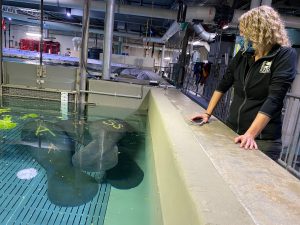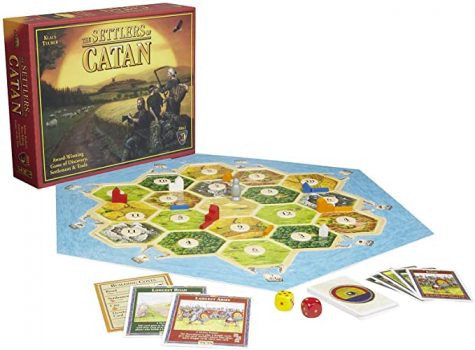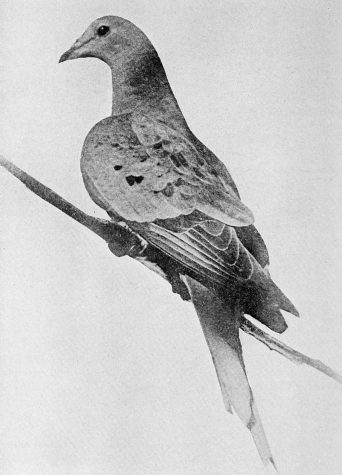Corporal Wojtek: The Legendary Polish Bear
April 14, 2020
BY LORILEI BLACKETT
Corporal Wojtek (pronounced as “V OY – t eh k”), was one of the most legendary soldiers in history. He was apart of the 22nd Transport Company, Artillery Division, Polish 2nd Corp. During World War II, Wojtek brought hope and happiness to those around him. While he may have been humane, Wojtek, was not a human.
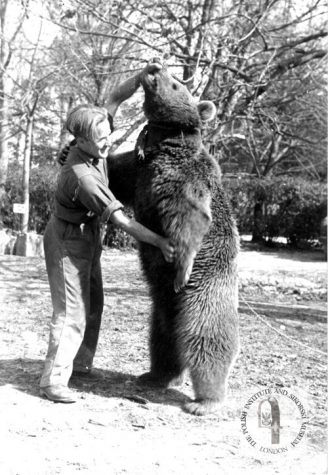
He was a real life brown bear!
Wojtek’s story began with Polish soldiers. Shane Madej in a Buzzfeed video says, “[they] were previously prisoners of war, and had only recently been released from Siberian gulags when the Allied Powers had successfully brokered their freedom.”
While the soldiers were heading to regroup with the British, they met a boy with a sack. To the soldiers’ amazement, when they looked inside the boy’s sack they saw a starving baby brown bear inside.
According to Wojciech Oleksiak, they bought the bear from the boy for “a handful of Persian coins, some chocolate, a Swiss knife and a tin of beef,”. Quickly they fed him, and though at first, it was a struggle to find out how they would feed the bear, they settled on “an empty vodka bottle with a twisted handkerchief,” according to an article by Patrick Polec. Later the soldiers would hypothesize that some vodka had accidentally been mixed in with the milk and that is why Wojtek enjoyed alcohol so much when he got older.
In the end the soldiers named the bear Wojtek, which translates to smiling warrior.
Sonia Haynes, the daughter of Henryk Zacharewicz who was one of Wojtek’s caretakers. In article by The Hamilton Spectator, she said “the bear was given a paybook, name, serial number and rank by the Poles to get him on a British transport ship when the unit sailed from Egypt to fight with the British 8th Army in the Italian campaign.”
“Because he was raised from a cub among people, he had no difficulty fitting in with his brothers-in-arms” (CULTURE.PL).
Even though he was provided with a bathtub and later a trunk to sleep in, Wojtek preferred to sleep with his fellow soldiers. Cuddling strangers was also a thing he enjoyed.
Wojtek was known to wrestle and box with the other soldiers in his free time. Sometimes allowing his opponent to win, though he was careful so that he never hurt anyone, according to sources.
He not only liked to drink alcohol, but he also smoked and would eat lit cigarettes. According to Patrick Polec, “When offered an unlit cigarette he was quick to spit it out” (Patrick Polec).
It wasn’t all fun and games for Wojtek, he did participate in battle. During the Battle of Monte Cassino, he carried supplies.
According to an article on CULTURE.PL, written by Wojciech Oleksiak, when a soldier jokingly asked him to carry a crate full of shells Wojtek got up on his rear legs and took the crate.
“An image of him carrying an artillery shell became an official army symbol, proudly affixed on the uniforms, pendants and vehicles of the 22nd Company.”(Patrick Polec)
Once the 22nd Artillery Supply was demobilized, his company had trouble finding out what to do with him, since he had no one to take care of him in Scotland.
According to Wojciech Narebski, in a BBC article, “The communist authorities in Poland wanted to take him to the zoo in Poland, but my colleagues who were staying in Scotland were against this.’”
They decided to send him to the Edinburgh Zoo, he became the Zoo’s most popular attraction. Patrick Polec writes that Wojtek’s “comrades frequently jumped over the fence and into his cage in order to wrestle with the aging bear.”
Once Poland regained its freedom, Wojtek’s comrades wanted to take him back to Poland for a victory parade. However, they never got to do this for Wojtek died before Poland became an independent state.
It would be a lie to say that Wojtek enjoyed being indoors, confined in a cage, during his last days. He was a soldier and must have wanted to spend that time with his fellow soldiers.
He died at the age of 22 in 1963, partly because of issues with his esophagus, he did eat a lot of lit cigarettes.
Currently a large sculpture of Wojtek is at The Wladyslaw Sikorski Institute in London. Also, through the Wojtek Memorial Trust, there is a permanent memorial to Wojtek in Princes Street Gardens in Edinburgh.
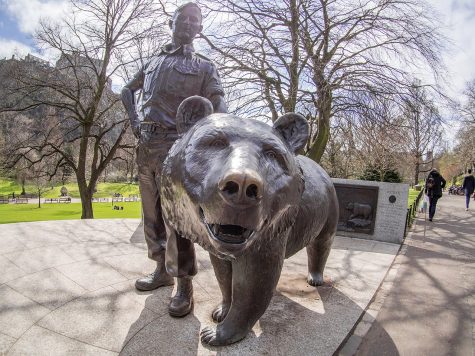
Wojtek brought light in the middle of dark times and has earned his place as one of the most legendary soldiers in history.






